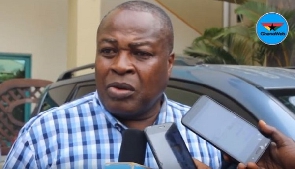Accra, March 31, GNA - Research on the current financial service and policy environment in Ghana and West Africa for trading and sending remittances on a formal basis revealed transfer of extraordinary amounts of money and an immense and growing market opportunity for the private sector.
The research was funded by the United States Agency for International Development (USAID) Portions of the research findings read by Mrs Pamela Bridgewater, American Ambassador in Ghana, at the opening of a two-day forum in Accra on remittance and trade in West Africa indicated that the value of trade between Ghana, Mali, Nigeria and Senegal was estimated to be worth eight billion dollars a year most of which was outside the formal economy. The report also indicated that up to 10.0 per cent of West Africans were working outside their country of origin and that the workers sent an estimated two billion dollars a year across the borders of the countries researched but again most of the transfers were made informally.
"In other words, at least 10 billion dollars of informal financial transactions are taking place in just four West African countries," Mrs Bridgewater said, adding "since these dollar amounts are estimates, the figures could actually be much higher."
She said the report also revealed that private financial flows to Ghana from Europe, the United States and Canada had increased rapidly over the past few years and in 2005, total private remittances exceeded four billion dollars, with individual remittances contributing over a third of the total.
Half of Ghanaians living abroad had real estate investment in Ghana with remittances from them growing overtime instead of tapering off unlike other countries.
The Ambassador said total remittances for 2004 and 2005 increased by 60 per cent.
She said those who lived and worked in West Africa dedicated a large part of their professional lives to attracting more resources and investment to the region but the research showed that substantial resources that could contribute to Africa's development was already in the region.
"All we need to do is to create the right environment and funnel these financial resources to private sector entrepreneurs.
"They in turn can use these resources to create new businesses and new jobs and spur Africa's development across the board," the Ambassador said.
She, therefore, encouraged the participants at the forum to identify ways of encouraging more West Africans to use the formal means to settle financial transactions in support of legitimate economic activity.
The forum brought together Governors of Central Banks, bankers and officials of financials institutions to discuss ways of enabling the private sector to harness regional remittances and trade settlements for the benefit of citizens.
The Dutch Ambassador in Ghana Arie van der Wiel said the level of remittances was much more than the foreign aid the country received in 2005 or its export earnings from cocoa and gold.
"The Bank of Ghana figures may only be the tip of the iceberg since they do not include remittances sent through informal channels," he said. Mr van der Wiel observed that until recently migration was a missing link in Ghana's social and economic planning and described it as amazing given the country's profile on migration.
He said not only did migration contribute substantially to Ghana's Gross National Product but it also involved a large proportion of the population, about three million people.
The Ambassador mentioned a number of conference held in the past two years, which highlighted the issue of migration and remittances but said there was a lot of speculation on the reasons for the remittance boom in Ghana.
The reasons included concerns about money laundering and drug trafficking, Mr van der Wiel said and called for the encouragement of more research to counter the tendency towards sensationalism and for better understanding of the phenomenon.
"Foreign sponsored and conducted research in Ghana should where possible also contribute to capacity building of research institutions here," Mr van der Wiel said, and welcomed the formation of a committee that recommended the establishment of a centre for migration studies at the University of Ghana Legon to generate and harmonise data and give guidance on migration issues in Ghana.
"It will also be a key in strengthening the regional West African research cooperation," he said.
Dr Mohamed Ibn Chambas, ECOWAS Executive Secretary, in a speech read for him by Dr Michael Ojo, Director General of the West African Monetary Institute, said the vision of the region was to integrate all the national economies into a regional market of over 250 million inhabitants.
He enumerated some of the programmes towards the achievement of this goal to include implementation of the Trade Liberalisation Scheme and the introduction of the common currency, the ECO, under the West African Monetary Zone (WAMZ).
An important aspect of the common currency programme was the development and harmonisation of existing payments system aimed at achieving a smooth functioning and robust payments mechanism in member countries that would facilitate internal and cross-border remittances and transfers to support trade in goods ad services. Dr Chambas said, however, that what had been lacking was the creation of the necessary environment for the potential to be tapped and developed but that this was what ECOWAS had been trying to solve under serious constraints over the years through the design of appropriate cooperation and integration programmes in the areas of trade, customs and monetary integration.
"In spite of the past failures in achieving our goals as planned, we must not give up but rather persist in our quest." he said. 31 March 06
Click to view details



Business News of Friday, 31 March 2006
Source: GNA
















